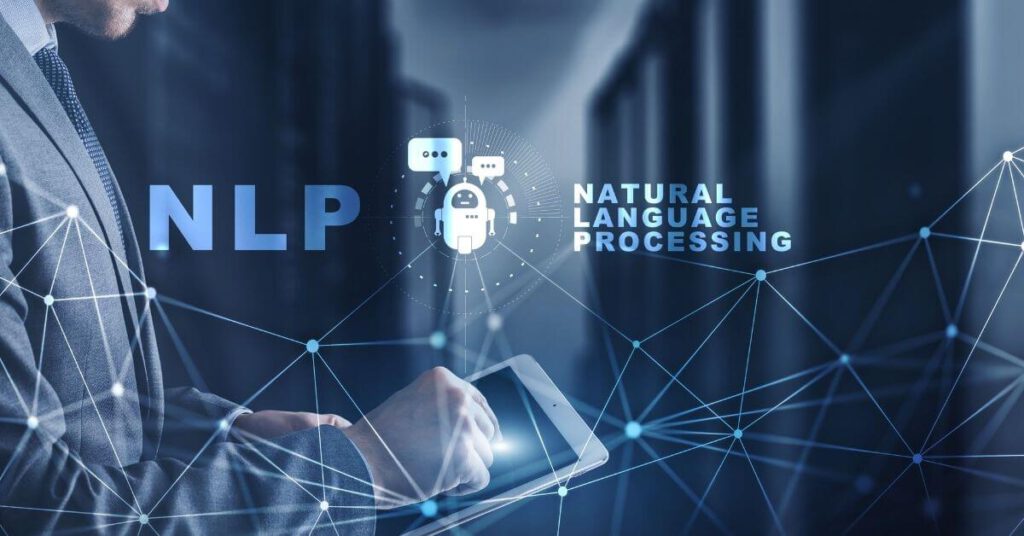Natural Language Processing (NLP) is a subfield of Artificial Intelligence that focuses on the interaction between computers and human language. Simply speaking, it involves teaching machines how to understand and interpret human language, both written and spoken. NLP has become increasingly important in recent years, and has a wide range of applications across many industries.

One of the key challenges in NLP is that human language is inherently complex and ambiguous. Words can have multiple meanings, and the same sentence can be interpreted differently depending on the context in which it is used.
To overcome this as a challenge, NLP relies on a combination of techniques, including machine learning algorithms, statistical models, and rule-based systems. These techniques allow machines to recognize patterns in language and make sense of it in a way that is similar to how humans do.
One of the most common applications of NLP is in the field of natural language understanding, which involves analyzing human language to extract meaning and context. This includes tasks such as sentiment analysis, where machines are trained to identify the emotions expressed in text or speech, and named entity recognition, where machines identify and classify specific entities such as people, organizations, or locations.
Another important application of NLP is in natural language generation, which involves teaching machines how to generate human-like language. This can be used to automatically generate reports, summaries, or even entire articles. It has also been used to create chatbots and virtual assistants that can interact with users in a more natural way.
NLP has many practical applications in healthcare, finance, and customer service industry. In healthcare, NLP is used to analyze medical records and patient data to improve diagnosis and treatment. In finance, it is used to analyze news and social media data to predict market trends. In customer service, it is used to automate responses to common queries and improve overall customer experience.
Despite the progress made in NLP, there are still many challenges to be addressed. One of the biggest challenges is that language is constantly evolving, and machines need to be trained on vast amounts of data to keep up with these changes. Additionally, there are still many subtleties in human language that are difficult for machines to understand.
In conclusion, NLP is a powerful technology that has great potential, we can unlock new insights and opportunities that were previously inaccessible. As NLP continues to advance, we expect to see even more exciting developments in the years to come.